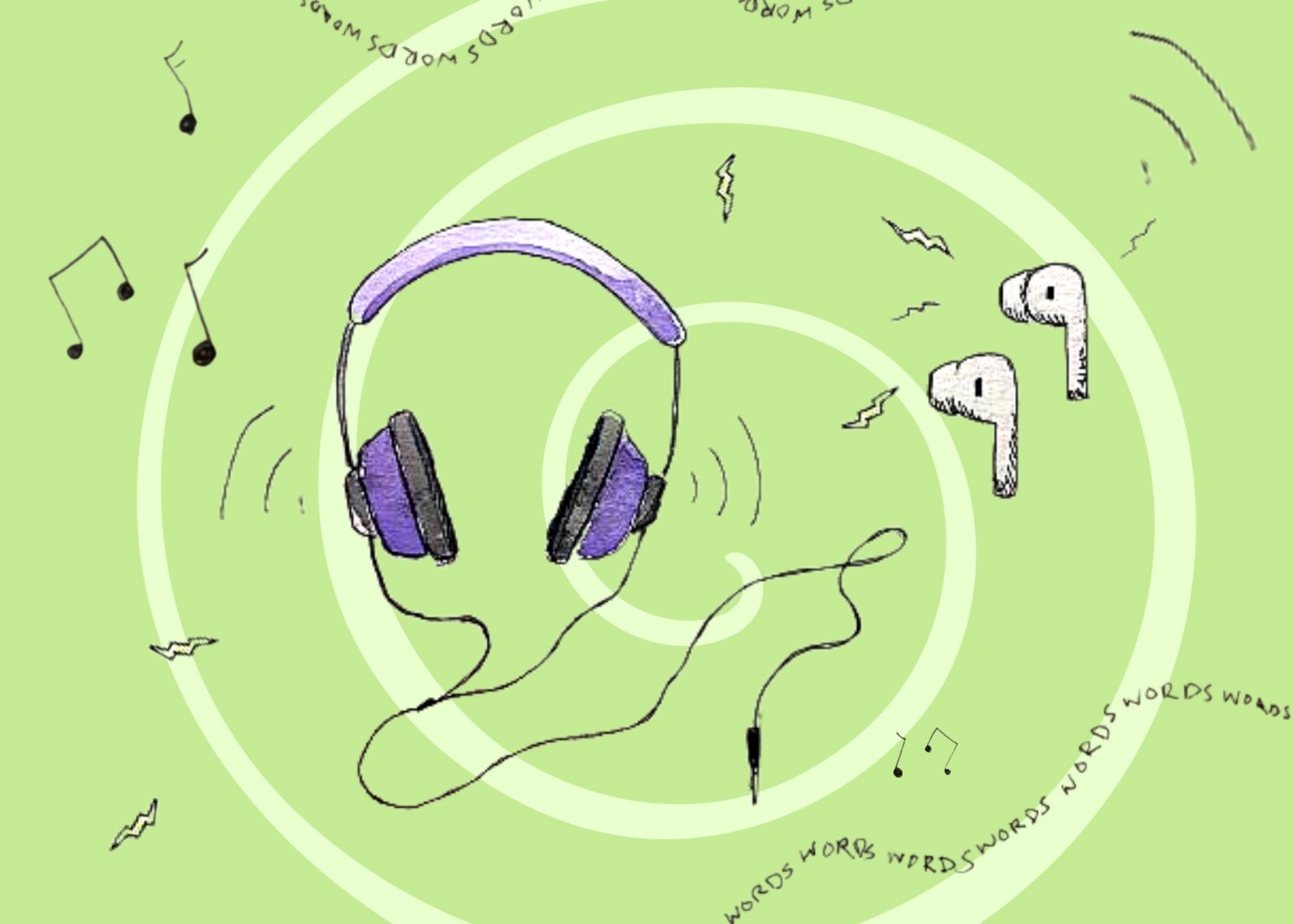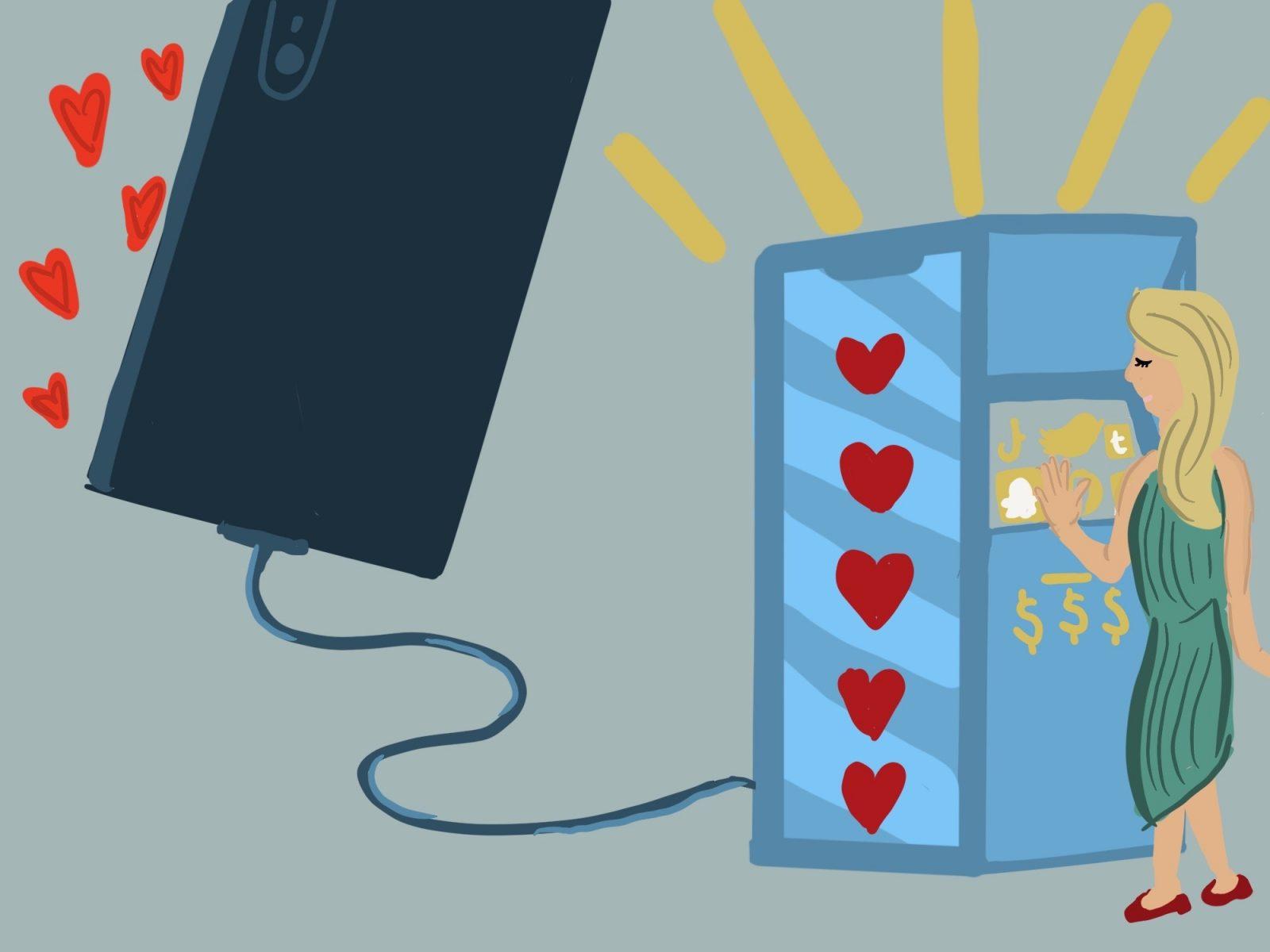As the semester progresses, I find myself constantly wearing my AirPods. Mindlessly and habitually, I pop them in at any given moment — walking to and from class, running errands and riding the T.
Unsurprisingly, I’ve also felt like my brain is buzzing with noise when I’m AirPod-free: a phantom limb phenomenon, perhaps.

Maybe I’m wrong to extrapolate my anecdotal noise addiction and presume others suffer from this self-prescribed disease as well, but from my observations, it seems as though we can’t get away from noise. If anything, it seems like we’re endlessly drawn toward it.
I started to look into whether this incessant need for noise is simply a harmless byproduct of entertainment culture’s gradual evolution or if it’s a more alarming — and potentially harmful — consequence of the streaming culture born of this decade.
As dramatic as it may sound, the recurrent itch to grab our headphones not only prevents our ability to see the world around us, but also the world within.
I’ll focus on the latter. Listening to loud music can increase one’s chance of getting into a motor vehicle accident, and distracted pedestrians are more likely to be injured in some way than non-distracted ones.
Beyond these apparent physical risks, what are the internal harms we bear when constantly skipping to the next podcast or song?
This convergence of different bits of the mind can otherwise be understood as a “constellation of brain regions that are active when our thoughts are turned inward,” Richard Sima writes.
This psychological network is illustrated by the cultural phenomena of “shower thoughts” wherein the brief silence of running water ruminations allows our brain to piece together the subconscious puzzles that underlie our everyday thoughts and deeper analytical or emotional quandaries.
Removing ourselves from constant stimulation induces the proper state for the default mode network (DMN), or the parts of the brain “that show increased activity when a person is not focused on what is happening around them,” according to Psychology Today. That is, we turn inwards in the absence of external stimuli.
This reflective, introspective state does not lend itself only to the creativity of shower thoughts per se, but moreover to “our sense of self,” Josie Glausiusz of Scientific American writes.
To an extent, daydreaming can be unhealthy and lead one to inappropriately project romanticized visions onto their physical reality. However, when performed in a meditative, present and conscious manner, daydreaming becomes a key technique for self-understanding and subconscious alignment.
It may be impossible to avoid noise in cities — the noise of New York City remains at a staggering average of 85 decibels — but it is necessary that we find moments for this precious resource of silence in a world where we are otherwise forced to escape from stimulation.
I’m taking on a personal challenge of going AirPod, podcast and music-free for a week. While I’m sure this will be a drastic change, I’m excited to see whether my brain buzzes a bit less than it has been since the semester began, and I invite you to similarly experiment with your daily dose of silence as well.

























































































































